Maria Mushtaq
CAN-BERT do it? Controller Area Network Intrusion Detection System based on BERT Language Model
Oct 17, 2022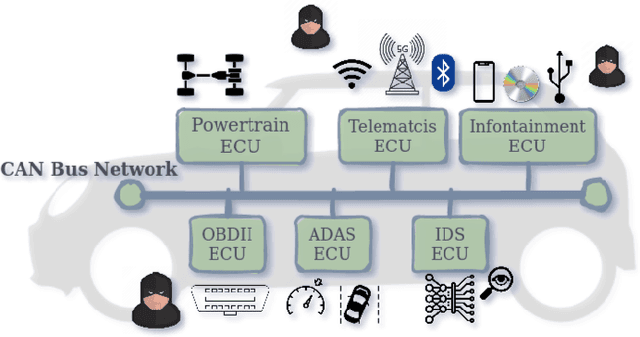

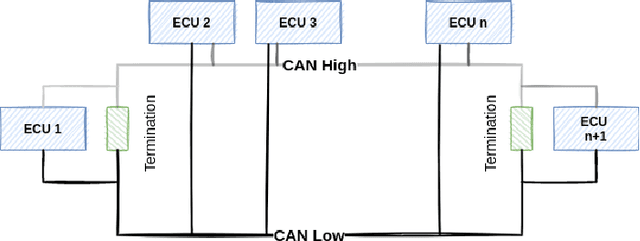
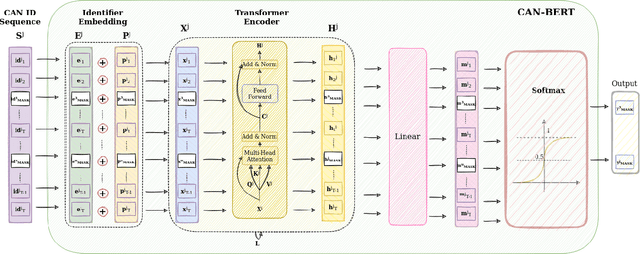
Abstract:Due to the rising number of sophisticated customer functionalities, electronic control units (ECUs) are increasingly integrated into modern automotive systems. However, the high connectivity between the in-vehicle and the external networks paves the way for hackers who could exploit in-vehicle network protocols' vulnerabilities. Among these protocols, the Controller Area Network (CAN), known as the most widely used in-vehicle networking technology, lacks encryption and authentication mechanisms, making the communications delivered by distributed ECUs insecure. Inspired by the outstanding performance of bidirectional encoder representations from transformers (BERT) for improving many natural language processing tasks, we propose in this paper ``CAN-BERT", a deep learning based network intrusion detection system, to detect cyber attacks on CAN bus protocol. We show that the BERT model can learn the sequence of arbitration identifiers (IDs) in the CAN bus for anomaly detection using the ``masked language model" unsupervised training objective. The experimental results on the ``Car Hacking: Attack \& Defense Challenge 2020" dataset show that ``CAN-BERT" outperforms state-of-the-art approaches. In addition to being able to identify in-vehicle intrusions in real-time within 0.8 ms to 3 ms w.r.t CAN ID sequence length, it can also detect a wide variety of cyberattacks with an F1-score of between 0.81 and 0.99.
AVTPnet: Convolutional Autoencoder for AVTP anomaly detection in Automotive Ethernet Networks
Jan 31, 2022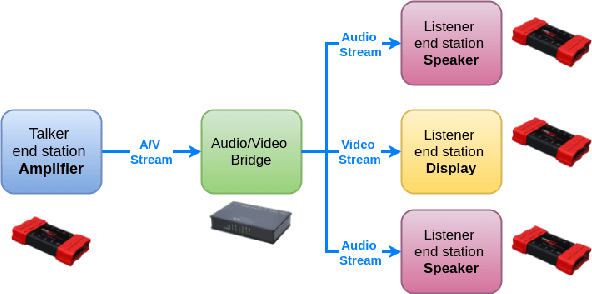
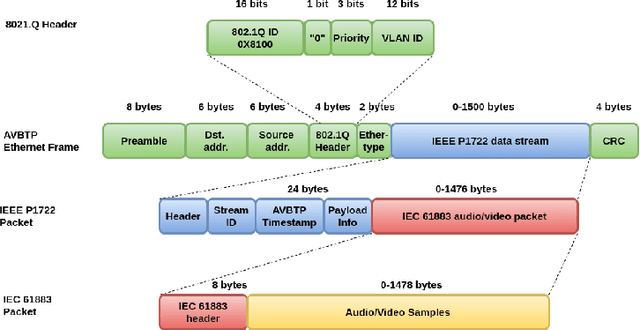
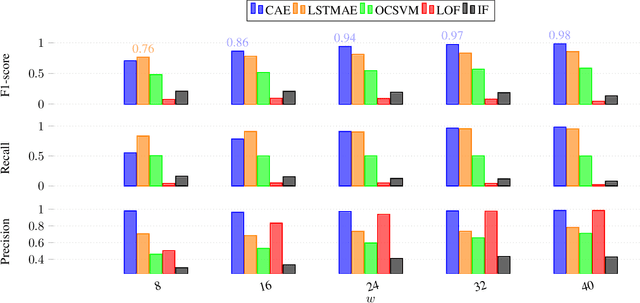
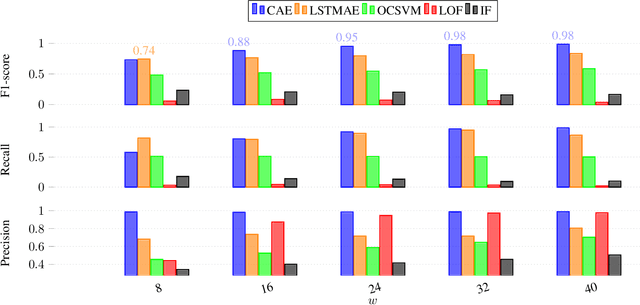
Abstract:Network Intrusion Detection Systems are well considered as efficient tools for securing in-vehicle networks against diverse cyberattacks. However, since cyberattack are always evolving, signature-based intrusion detection systems are no longer adopted. An alternative solution can be the deployment of deep learning based intrusion detection system (IDS) which play an important role in detecting unknown attack patterns in network traffic. To our knowledge, no previous research work has been done to detect anomalies on automotive ethernet based in-vehicle networks using anomaly based approaches. Hence, in this paper, we propose a convolutional autoencoder (CAE) for offline detection of anomalies on the Audio Video Transport Protocol (AVTP), an application layer protocol implemented in the recent in-vehicle network Automotive Ethernet. The CAE consists of an encoder and a decoder with CNN structures that are asymmetrical. Anomalies in AVTP packet stream, which may lead to critical interruption of media streams, are therefore detected by measuring the reconstruction error of each sliding window of AVTP packets. Our proposed approach is evaluated on the recently published "Automotive Ethernet Intrusion Dataset", and is also compared with other state-of-the art traditional anomaly detection and signature based models in machine learning. The numerical results show that our proposed model outperfoms the other methods and excel at predicting unknown in-vehicle intrusions, with 0.94 accuracy. Moreover, our model has a low level of false alarm and miss detection rates for different AVTP attack types.
 Add to Chrome
Add to Chrome Add to Firefox
Add to Firefox Add to Edge
Add to Edge